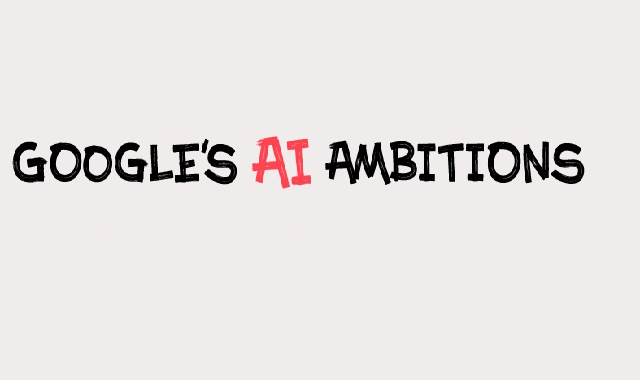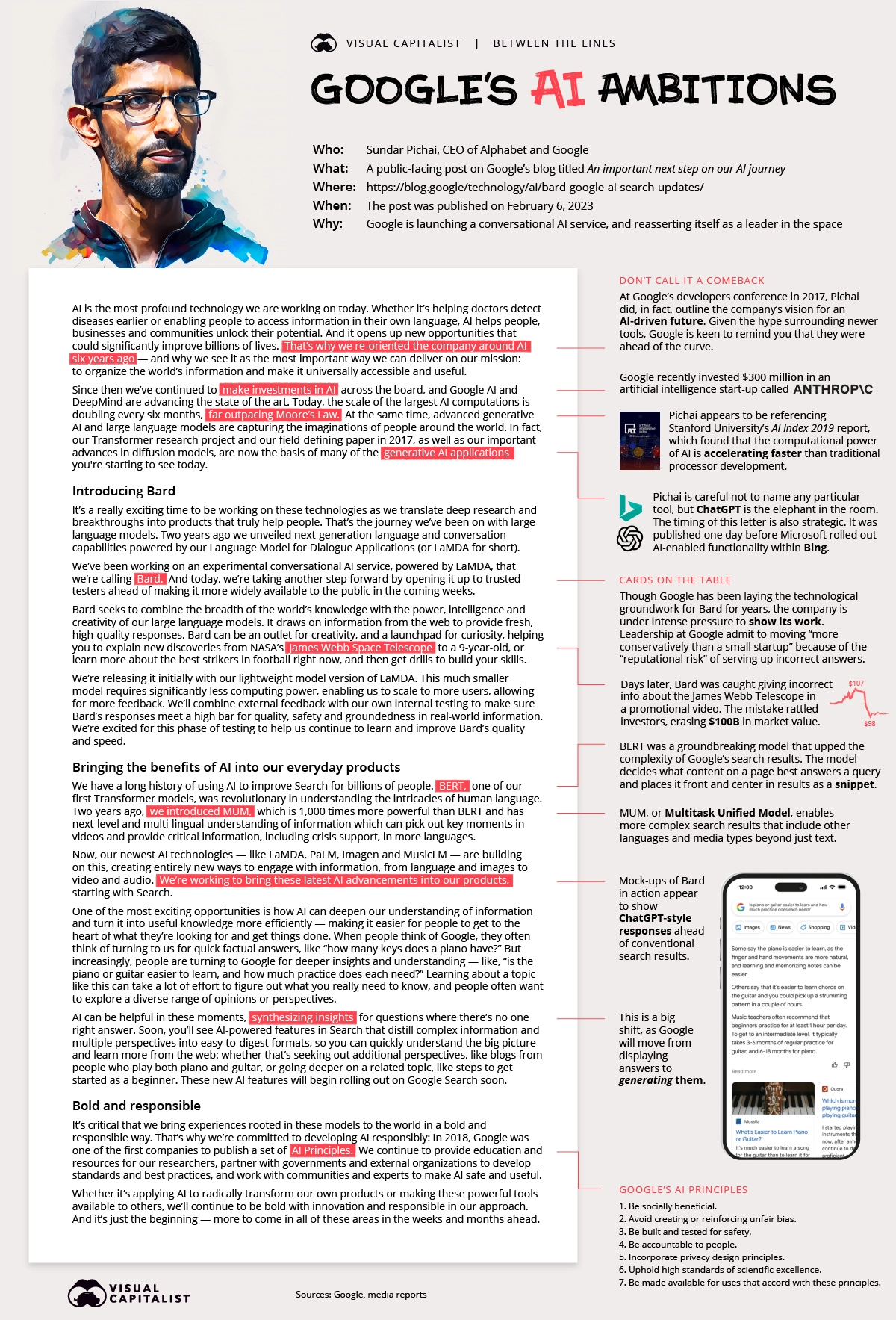Anyone who has tested ChatGPT can get a sense of the
potential of generative AI — even in the earliest stages of this technology.
The excitement around AI was rising throughout 2022, and has
reached a fever pitch today.
We have seen hype cycles swell around specific technologies
in the past. Exapmles include Blockchain, Metaverse, NFTs, and the list goes
on. It is yet to be seen what physical value is shaped after the heat dies
down, but in the time being, some of the world’s leading companies are taking
it very seriously.
Google is at front position of this movement which on the
inside reoriented itself around AI years ago, so, so the recent letter
published by Google CEO Sundar Pichai is significant.
After all, billions of people from around the world use Google Search for learning, and Alphabet is one of the world’s most valuable, powerful tech companies. But before we “read between the lines” of the letter, it is worth coming back to the larger context that this letter addresses.
OpenAI Has Entered the Chat
Artificial intelligence has been marking up a number of wins
in recent months, but only DALL-E Mini and ChatGPT are the ones that really
allowed generative AI to burst into the public consciousness. In fact, ChatGPT
became so widespread in a very short amount of time that Google had to declare
an internal “code red” to address this issue. Leaders at Google were well aware
of the disruptive power of conversational AI because they were already testing
their own models internally.
Microsoft soon recognized the potential as well, and made an
investment of $10 billion in OpenAI, which runs ChatGPT as well as various other
publicly-accessible AI tools. Microsoft moved with an intention to bring the
magic of ChatGPT over to their Bing search engine so they could possibly steal
market share away from Google.
This sets the stage for what we are seeing today. Basically
every big tech firm is singing AI’s praises, and it appears that Microsoft and
Google are entering into an AI race.
The AI Race is Heating Up
If any questions were to be asked about how seriously Google
was taking Microsoft’s new partnership with OpenAI, recent messaging should
remove all doubts. The letter by Sundar Pichai speaks volumes while never
straying far from official talking points. Here is the highlight of high-level
messaging in Pichai’s letter:
Google has already been in the AI game for years now
Bard is going to make Google search more ChatGPT-like
Google is only late to the party because they’ve been
careful
On this last point: a message from the CEO, which confirms
the company’s commitment to AI would normally concur with a product launch, not
one that will be released to the public “in the coming weeks”. This messaging
highlights a significant obstacle that Google is facing. Being terrifies of the
“reputational damage” that could come from rolling products out too early, the
company has been forced to move slower than the market now expects.
Google has already borne a painful mistake after reporters
discovered an incorrect answer in a promotional video touting the
conversational AI service, Bard. This simple mistake cost Alphabet $100 billion
in market value, representing how high the stakes are now that Big Tech’s AI
progress is under the microscope.
It is quite interesting to notice the timings of this letter.
It was published the day before Bing rolled out new AI-enabled features to the
public.
Let the competition for position begin.
Nobody wants to be Left Behind
The biggest players battling it out in the Artificial Intelligence
space may be Google and Microsoft,
Google and Microsoft may be the biggest players battling it
out in the AI space, but there are signs all over that AI represents an immense
technological shift that will influence a number of industries. From Fiverr’s
“Open Letter to AI” to Baidu’s recent AI chatbot announcement, it seems like every
day brings fresh news that fuels AI hype.
One thing is for sure: AI will be incorporated into digital
tools in more obvious ways and whether it is for better or worse, we will all
be playing a part in the experiment.
Infographic by: visualcapitalist


